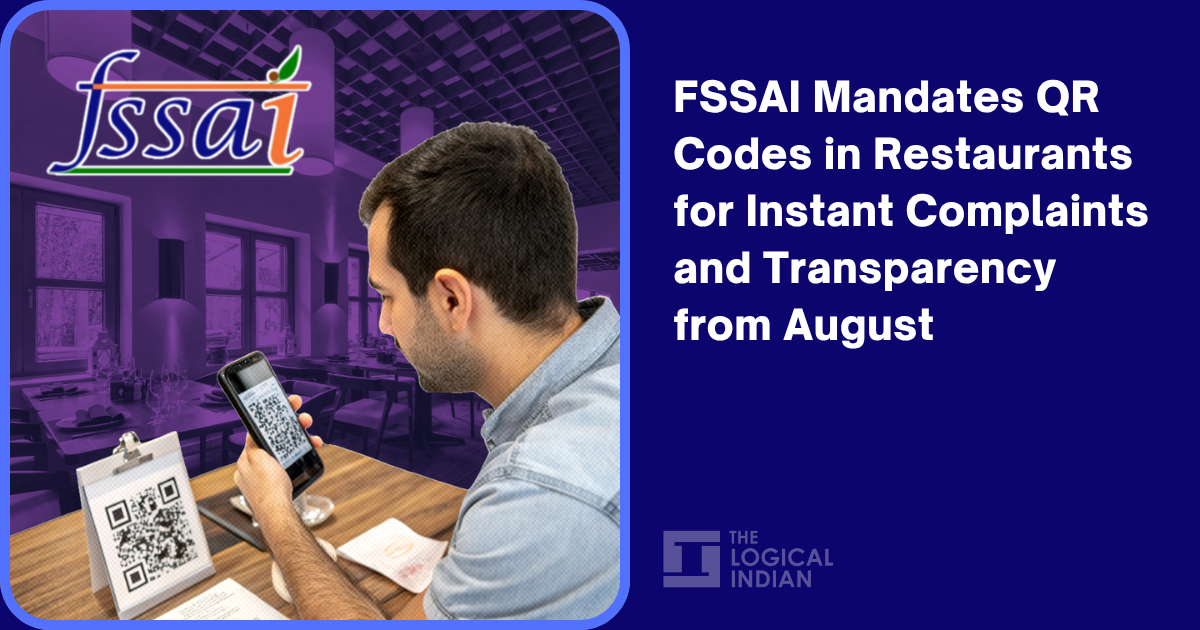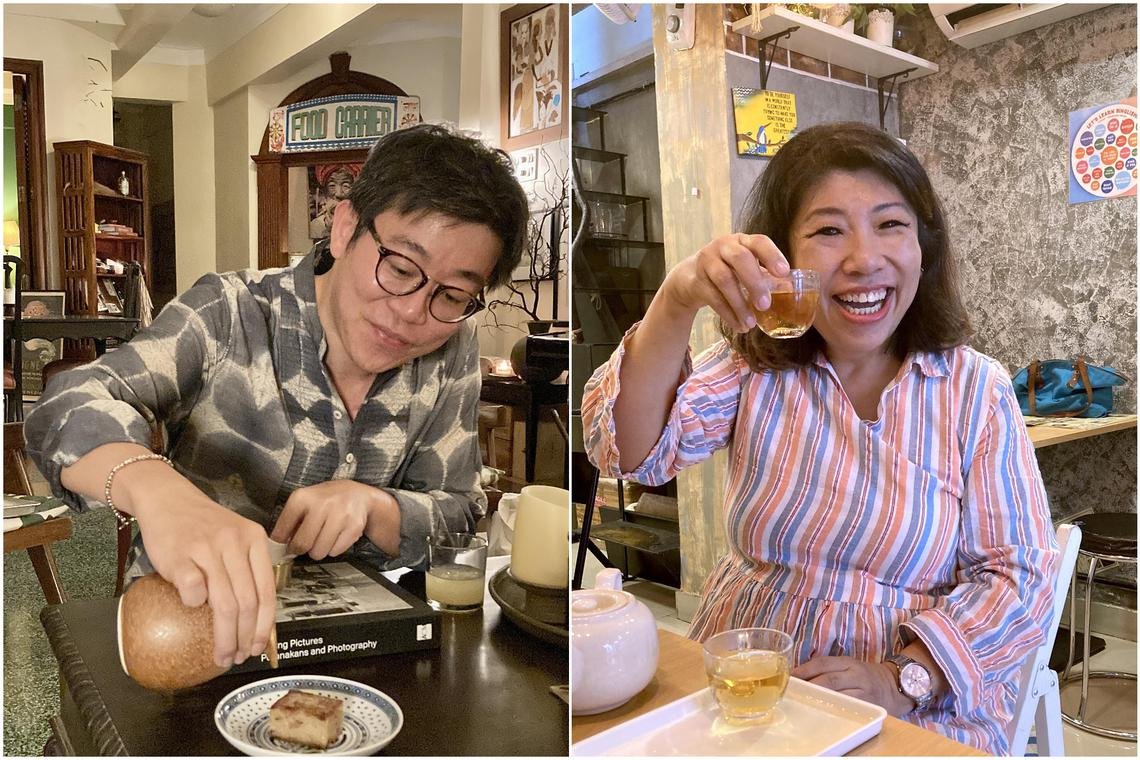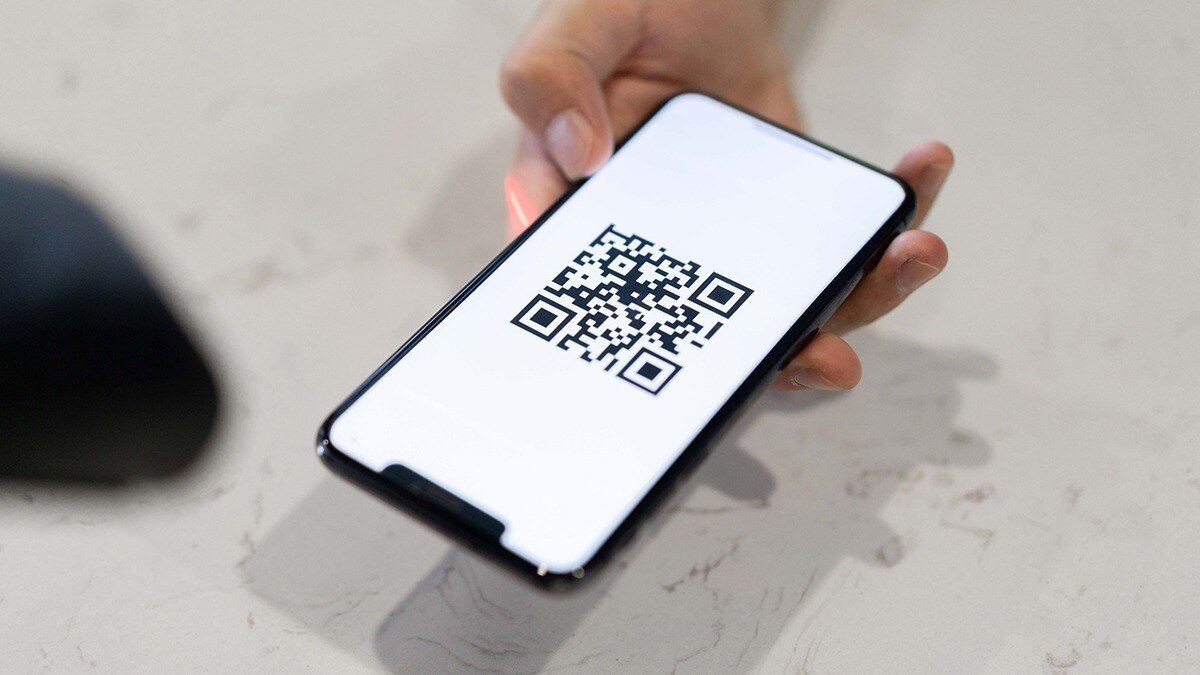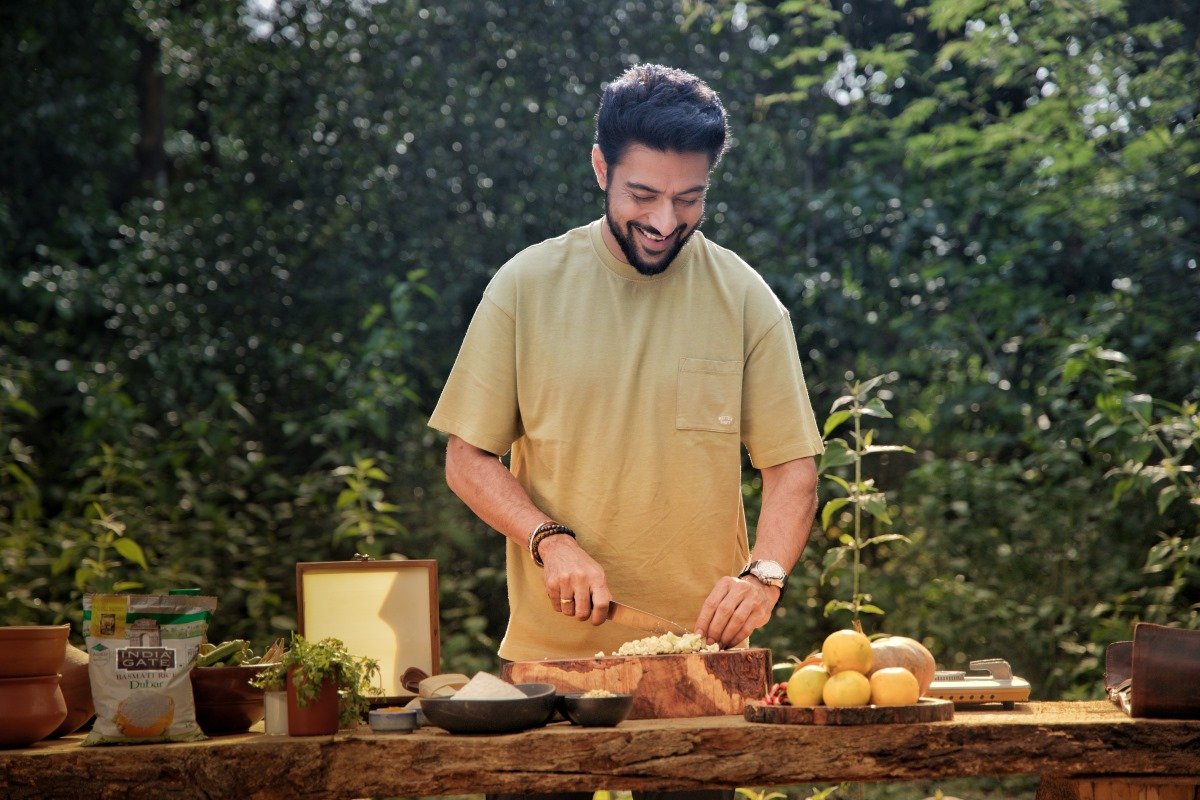Restaurants & Food
FSSAI Mandates QR Codes in Restaurants for Instant Complaints and Transparency from August

India’s Food Safety and Standards Authority (FSSAI) has implemented a new mandate from August 2025, requiring all food businesses—such as restaurants, cafes, cloud kitchens, and food trucks—to clearly display both their FSSAI license and a QR code linked to the Food Safety Connect App at key customer touchpoints.
This QR code allows consumers to instantly check food license details and raise concerns about food safety or hygiene. The aim is to strengthen consumer safety and regulatory transparency by enabling real-time, direct reporting of issues to authorities for quick resolution.
Enhancing Consumer Safety Through Digital Empowerment
Under the new rules, the QR code and license must be prominently displayed at entrances, billing counters, seating areas, and digital platforms like food delivery apps and websites.
By scanning the QR code, consumers can verify if an establishment is genuinely licensed, report hygiene violations, mislabelling, or unsafe practices, and even track the progress of their complaints in real time. FSSAI officials emphasise that this initiative “empowers consumers and modernises India’s food safety framework,” providing “a user-friendly tool for swift grievance redressal and heightened accountability”.
Who Must Comply – and What’s at Stake?
The directive applies to all food business operators (FBOs): restaurants, cafes, catering units, retail food outlets, cloud kitchens, food trucks, and even online delivery aggregators. Failure to comply may lead to penalties or suspension of food licenses, as per the Food Safety and Standards Act.
FSSAI highlights that this shift was driven by recent food safety lapses and widespread consumer complaints about poor hygiene and misleading labelling. With this move, India aims to foster a safer, more transparent, and trustworthy food landscape for every consumer.
Expert Advice: How Consumers and Businesses Can Stay Safe
Food safety experts and advocacy groups have welcomed the QR code initiative, calling it a much-needed reform for India’s fast-evolving food sector. Experts advise consumers to regularly scan the QR code whenever they visit a food outlet, always look out for a valid FSSAI license, and use the Food Safety Connect App to flag issues regarding hygiene or food quality.
For food business operators, experts recommend educating staff and customers about the new requirements, keeping the license and QR code up to date, and responding promptly to complaints. Professional food hygiene auditors and compliance consultants are now advising businesses to conduct regular kitchen audits, maintain proper documentation, and train teams on hygiene protocols to avoid penalties and protect business reputation.
Building a Transparent Food System – The Road Ahead
The introduction of digital QR code reporting marks a significant shift in food regulation, encouraging transparent operations and timely action on consumer complaints. By simplifying redressal avenues and holding food businesses to higher standards, this initiative takes Indian consumer protection a step further.
The Food Safety Connect App is available on both Android and iOS, ensuring wide accessibility. FSSAI encourages all food sector stakeholders to see this not just as regulatory compliance, but as a collective mission to build trust and ensure public health.
The Logical Indian’s Perspective
At The Logical Indian, we see this bold step as a cornerstone for a safer, digitally enabled, and empathetic consumer ecosystem. With robust reporting tools and strict accountability, Indian diners are now better equipped than ever to demand safe food and fair practices.
FSSAI mandates display of the ‘Food Safety Connect’ App QR Code at all food outlets- a move aimed at empowering consumers by providing them with a direct & user-friendly platform for grievance redressal. #FSSAIRelease @PIB_India @MoHFW_INDIA
Read More – https://t.co/xWLQgPJU8i pic.twitter.com/U8w8tPlASy
— FSSAI (@fssaiindia) August 1, 2025
Restaurants & Food
Char kway teow in India? Meet the Singaporeans bringing local food to Mumbai

MUMBAI – One runs a supper club that evokes memories of home-cooked flavours, and the other is billed as the city’s first Singaporean street food restaurant.
For these two chefs abroad, food is a way to stay connected to their Singaporean identity.
Restaurants & Food
FSSAI mandates QR codes at restaurants for easy complaints

The Food Safety and Standards Authority of India (FSSAI) has issued a fresh directive for all food business operators (FBOs) across the country, including restaurants, cafs, dhabas, and street-side eateries, to visibly display their FSSAI licence or registration certificate along with a QR code that links to the Food Safety Connect App. This move, according to the authority, is aimed at empowering consumers and making it easier for them to file complaints about food safety, hygiene, and misleading product labels.
The QR code, which is now a mandatory part of the FSSAI licence, must be placed in areas easily visible to customers, such as entrances, billing counters, or dining sections. Customers can simply scan the QR code using their smartphones and be redirected to the app, where they can submit complaints or view key information about the outlet’s registration status.
Once a complaint is submitted through the app, it is automatically routed to the correct jurisdictional authority for faster resolution. This direct reparation mechanism is expected to save time, cut through bureaucratic delays, and improve accountability within the food sector.
In a statement, the FSSAI said that this initiative is part of a broader strategy to ensure that food safety remains a priority for businesses and consumers alike. “This measure is aimed at empowering consumers by providing them with a direct and user-friendly platform for grievance reparation,” the authority noted.
The app not only allows users to report hygiene and safety violations but also helps them check if a food outlet is officially registered or licensed. Users can also stay updated on FSSAI’s latest food safety alerts and initiatives.
Additionally, FSSAI has asked all FBOs to integrate the QR code across their digital platforms, including websites and food delivery apps, wherever applicable. This would allow consumers to verify details or report complaints even while ordering food online.
The new rule comes shortly after FSSAI issued warnings to e-commerce platforms to comply with food safety norms. These platforms are now also required to display their FSSAI licence or registration numbers clearly on all receipts, invoices, and cash memos issued to customers.
By making it mandatory to display QR codes at physical locations and online, FSSAI aims to build greater trust among consumers and promote a culture of safety, transparency, and accountability in India’s vast food and hospitality sector.
– Ends
Restaurants & Food
‘None of my restaurants worked the way I wanted’

For celebrity Chef Ranveer Brar, success has never been linear. The suave Lucknow-born culinary personality, whose face is as familiar on Indian television as it is in gourmet kitchens, is unafraid to call out his failures. “My biggest failures have come from restaurants,” Brar admits. “None of my restaurants worked the way I wanted them to. Many of my restaurants in India didn’t do well. Soul of India in the US is not doing well.”
It’s a startlingly honest admission in a market that often celebrates chefs as infallible lifestyle brands. But Brar, 46, is cut from a different cloth. Even as he juggles television shows, acting roles, and a growing literary profile, he sees himself primarily as a learner. “I’m now understanding how to be better at managing and running restaurants — how to cook, how to translate the simplest of emotions into good food,” he says.
Shift towards intimacy
Brar’s career has evolved well beyond the kitchen. He has authored three cookbooks, judged MasterChef India, and hosted multiple food travelogues that blend storytelling with culinary insight. But 2023 marked a pivotal moment. He launched Kashkan, a contemporary Indian restaurant whose name fuses Kashmir and Kanyakumari and symbolises a pan-Indian culinary journey, in Dubai.
In 2023, Ranveer Brar launched Kashkan, a contemporary Indian restaurant whose name fuses Kashmir and Kanyakumari, in Dubai.
“We’re encouraged by its response to launch the second Kashkan there, which will open soon,” he shares. Unlike past ventures that felt either too stretched or too market-driven, Kashkan feels closer to Brar’s evolving philosophy. “In times to come, my eventual goal will be to be at just one small restaurant — a 20-25 seater — where people will be treated like they’re being invited to your living/dining room. This is where I’m heading.”
Also read: How Hyderabad’s Manam is putting Indian craft chocolate on the world map
This shift toward intimacy — both in food and form — feels aligned with Brar’s larger arc. The public may know him as a celebrity chef, but in private, he’s also a poet, photographer, and publisher. “Not many people know that poetry has been my secret passion for years,” he shares. “Interestingly, I started writing poetry before I even started cooking. However, those were all secret poems. But lately, when I’ve started reading my poems out to people, they’ve appreciated it, which encouraged me to write this book.”
His first poetry book
Shikayatein (Complaints), his debut collection of poetry and his first foray into non-cookery writing, is set to be released through his own publishing house, Inkstain. “Photography and poetry — about people I’ve met on my travels — are my two biggest passions,” he adds. For Brar, storytelling isn’t just an artistic outlet. It’s an extension of how he experiences the world.
Shikayatein (Complaints), Ranveer Brar’s debut collection of poetry, is set to be released through his own publishing house, Inkstain, soon.
Much of that sensibility stems from Lucknow, the city that shaped him. “This interest in literature comes from my love for my city, Lucknow,” he says. “In fact, I’ve stood for Lucknow all my life — the city’s mushairas, kavi sammelans, and good literature. So poetry fits very well into my persona as a Lucknow boy.”
That cultural grounding also informs how he raises his son. “I’m constantly speaking to him about what he’s reading and where. I want him to read books — not online,” he says. This analog loyalty — to food, words, and human connection — is what keeps Brar relevant even as the media landscape changes around him.
Interestingly, his most surprising pivot has come not through food or writing, but acting. In 2022, Brar made his acting debut in Modern Love Mumbai, playing a character in a same-sex relationship — a bold move for someone long associated with traditional culinary programming. “I didn’t want to act. It happened,” he says. “But when I was offered my first role, I was hesitant because it was an LGBTQ role. “‘Log kya kahenge?’ (what will people say?) was playing on my mind.”
Also read: How Indore, India’s cleanest city, became an inventive street food hub
That hesitation, he says, echoed an earlier moment of self-doubt: “It took me back to the days when I was hesitant to be a professional chef also — again thinking ‘log kya kahenge.’” But Modern Love Mumbai was both a critical and personal breakthrough. “It emboldened me. It encouraged me that people are ready to accept me in a role that was very different to Chef Ranveer Brar,” he says.
His most valuable asset
That led to The Buckingham Murders (2024) opposite Kareena Kapoor Khan, and most recently, Maa Kasam, a family drama set to premiere on Amazon Prime later this year. “Acting gives me perspective. It gives me a greater listening capability that allows me to project myself better, encourages me to listen to others, which in turn makes me a better person,” he says.
To refine this new craft, Brar recently enrolled in a short course on camera art through Natyashastra at Auroville. “It helped me understand the nuances of performance better,” he notes, highlighting his hunger to learn and unlearn at every stage.
Despite his multifaceted career, Brar’s focus remains deeply human. Whether through a recipe, a line of verse, or a dramatic role, he’s ultimately trying to connect. “I want a space where people don’t just eat food, they feel it,” he says of his dream restaurant. “Where the act of dining is an exchange of emotions.”
That ethos is perhaps what sets Ranveer Brar apart from other celebrity chefs chasing scale and speed. He’s not just building a brand, but a legacy that’s rooted in emotion, guided by aesthetics, and tempered by honesty. In a culture of instant gratification, Brar’s slow-burning authenticity may just be his most valuable asset.
-

 Brand Stories2 weeks ago
Brand Stories2 weeks agoBloom Hotels: A Modern Vision of Hospitality Redefining Travel
-

 Brand Stories1 week ago
Brand Stories1 week agoCheQin.ai sets a new standard for hotel booking with its AI capabilities: empowering travellers to bargain, choose the best, and book with clarity.
-

 Destinations & Things To Do2 weeks ago
Destinations & Things To Do2 weeks agoUntouched Destinations: Stunning Hidden Gems You Must Visit
-

 Destinations & Things To Do1 week ago
Destinations & Things To Do1 week agoThis Hidden Beach in India Glows at Night-But Only in One Secret Season
-

 AI in Travel2 weeks ago
AI in Travel2 weeks agoAI Travel Revolution: Must-Have Guide to the Best Experience
-

 Brand Stories1 month ago
Brand Stories1 month agoVoice AI Startup ElevenLabs Plans to Add Hubs Around the World
-

 Brand Stories3 weeks ago
Brand Stories3 weeks agoHow Elon Musk’s rogue Grok chatbot became a cautionary AI tale
-

 Asia Travel Pulse1 month ago
Asia Travel Pulse1 month agoLooking For Adventure In Asia? Here Are 7 Epic Destinations You Need To Experience At Least Once – Zee News
-

 AI in Travel1 month ago
AI in Travel1 month ago‘Will AI take my job?’ A trip to a Beijing fortune-telling bar to see what lies ahead | China
-

 Brand Stories2 weeks ago
Brand Stories2 weeks agoContactless Hospitality: Why Remote Management Technology Is Key to Seamless Guest Experiences

You must be logged in to post a comment Login